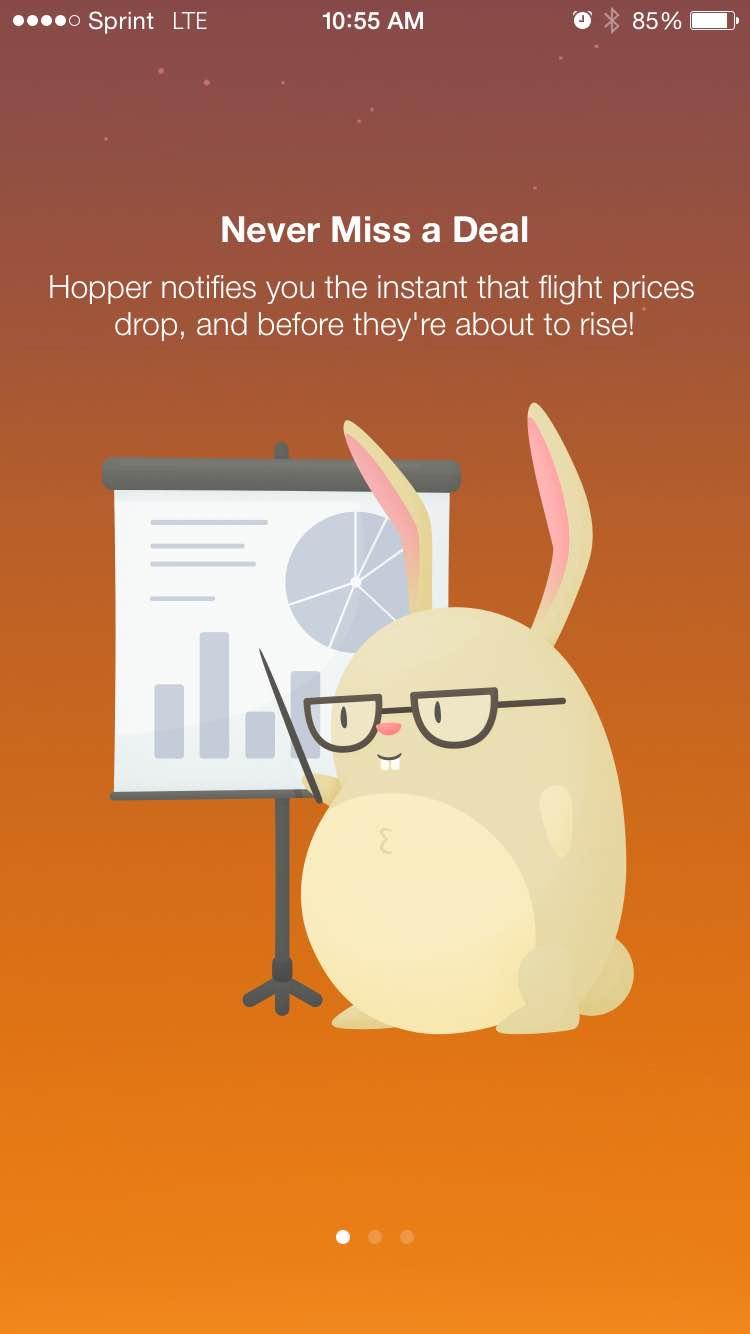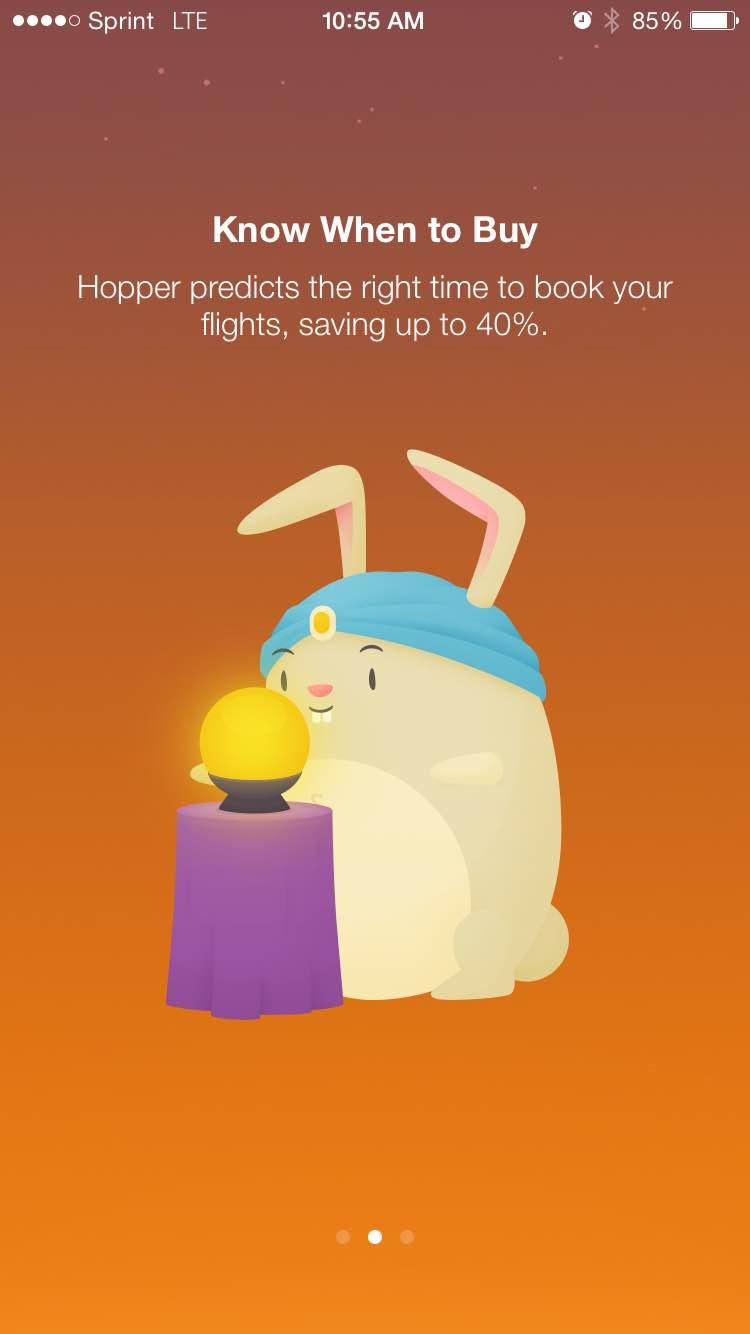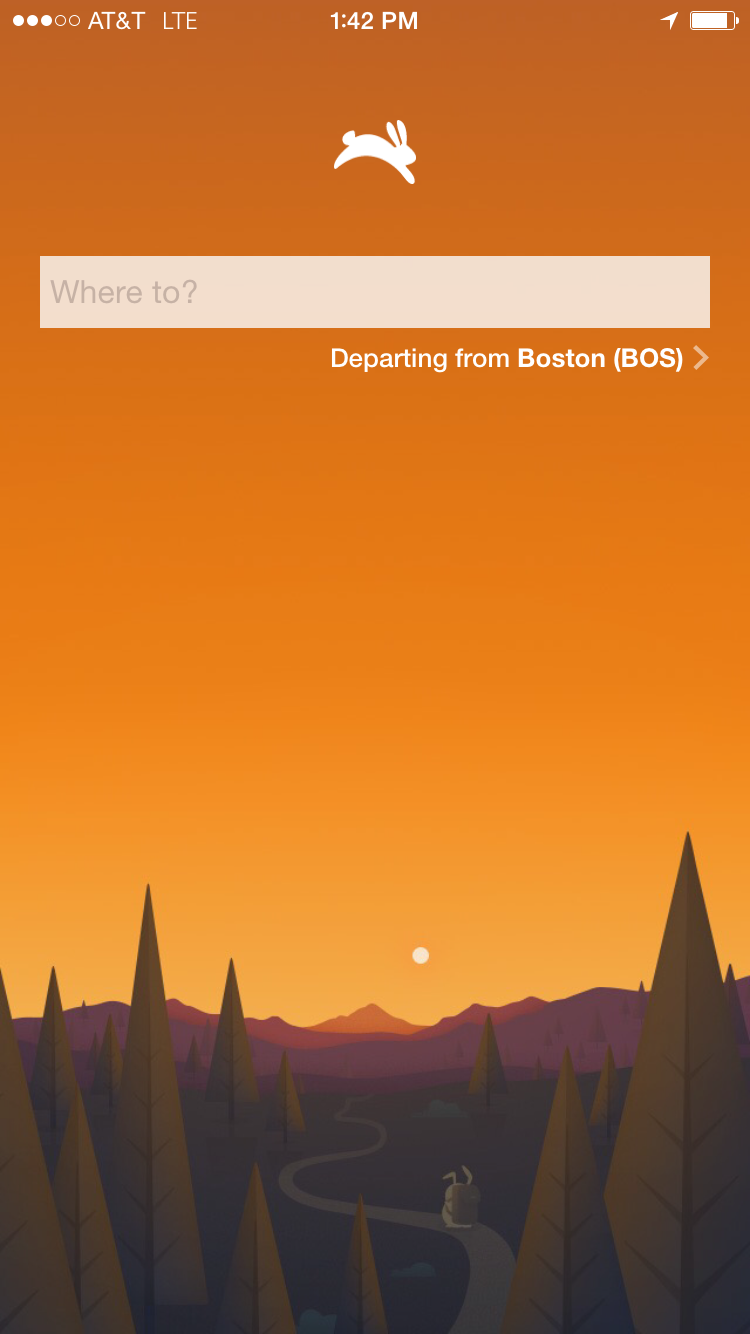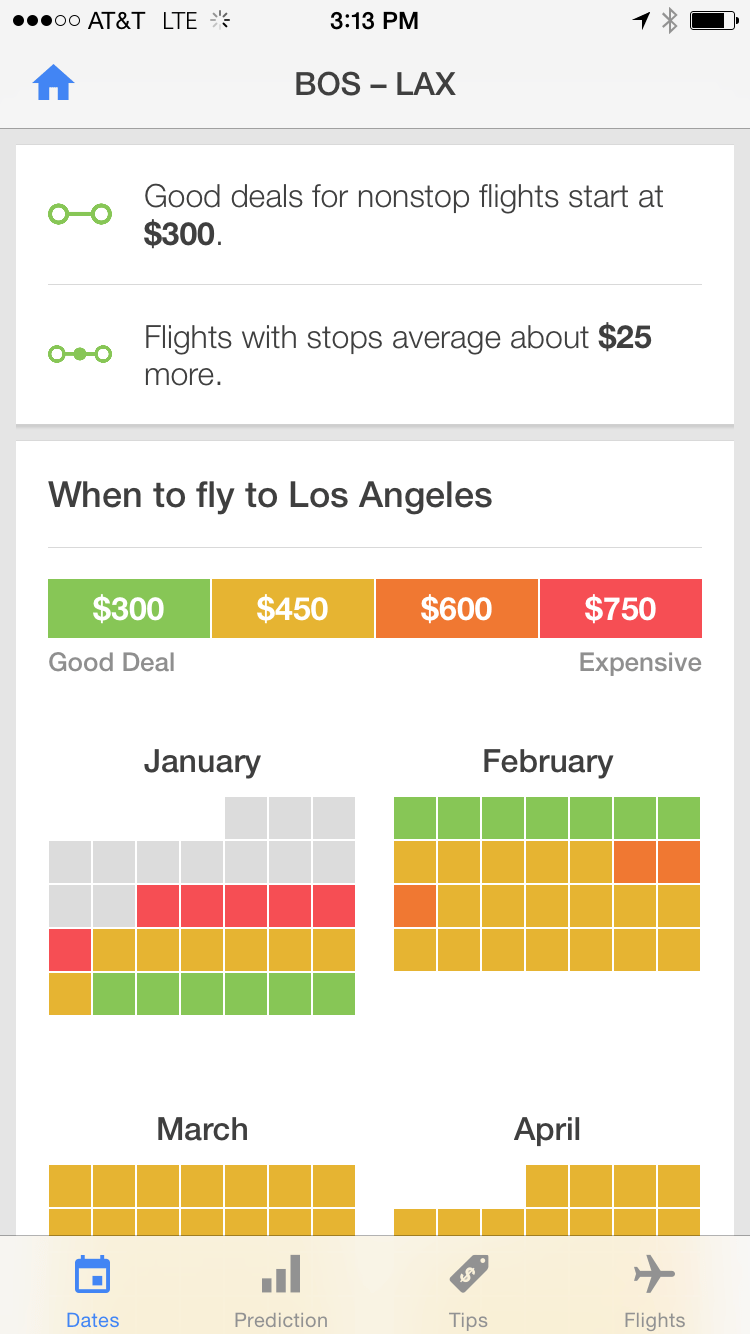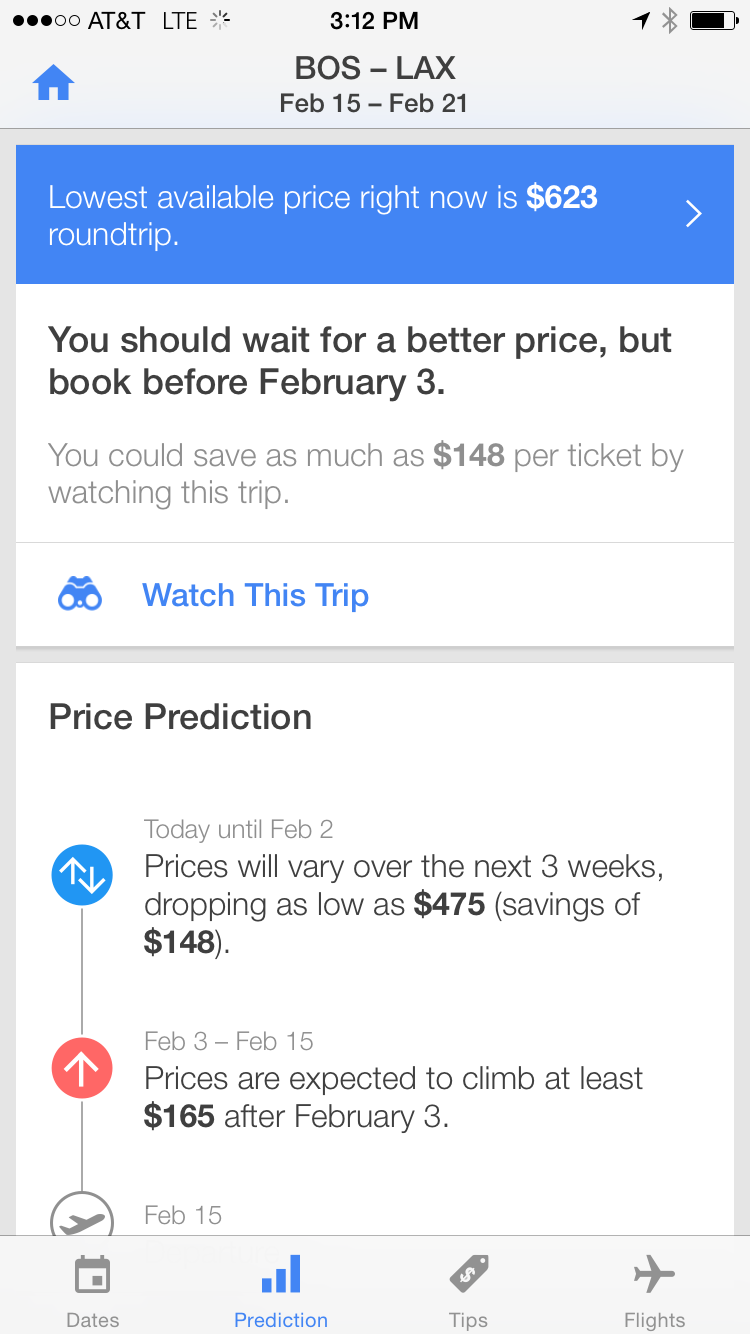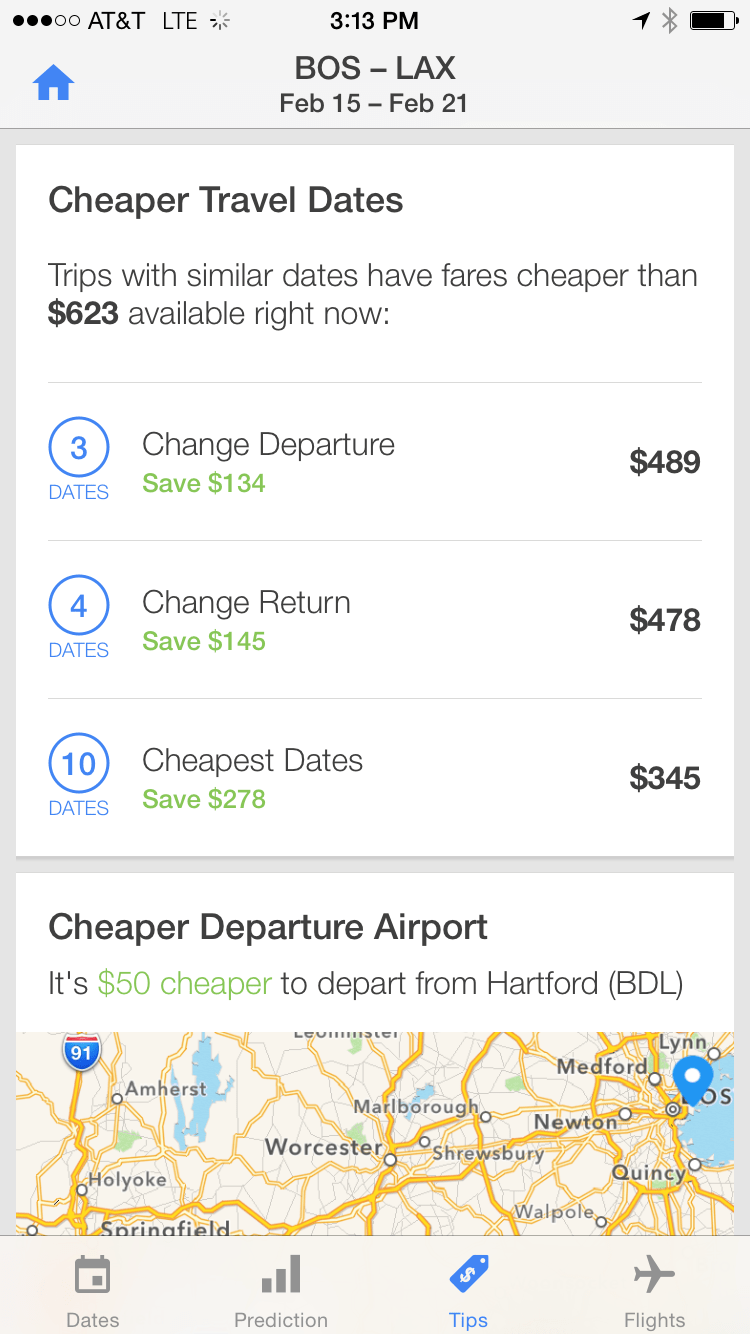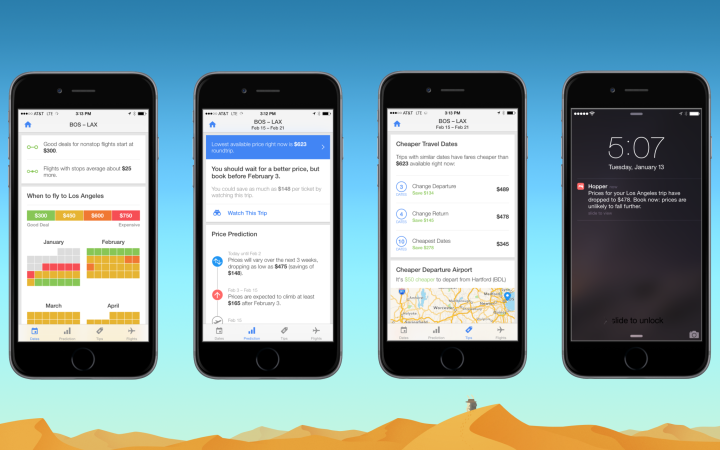
These days, we have the same access to airfares that they do (a travel agent at a major agency once confessed as much). The problem is, despite having access to info at our hands, most consumers don’t know what to do with it.
95 percent of the time, you’ll either find a better price by following our recommendations or do no worse than the initial price you looked at.
“Consumers seem to have this incredible appetite for someone to help them out, understanding how airfare prices work, and give them some comfort that they are actually getting a reasonable deal when they buy a ticket,” says Patrick Surrey, chief data scientist at Hopper, a company that uses data research to find low prices and predict trends. Consumers told him the process of buying a flight was still too painful. “You figure out where you’re trying to go, you spend a week or 10 days online, trying to comparison shop and figure out what’s going on with the price, and you do all this work. At the end of the process you end up making a purchase, and you’re feeling bad about it. You probably paid too much or you could have gotten a better deal or you should have bought it earlier.”
And it’s this gap in air travel – the lack of guidance, the missing travel agent to tell you that you’re getting the best deal – that Hopper is attempting to fill.
Here’s how Hopper makes its predictions: It continuously searches through massive amount of data, looking for trends and movements. After years of analyzing the quantitative info (since its founding in 2007 by former Expedia engineers), it is able generally predict when airfares are their cheapest, and offer purchase guidance, like whether to book that ticket to Hawaii for the summer, or if you should hold off.
“We’re getting a real-time feed of airfare search results that are being made online,” Surrey says. “When you go and make a search from New York to San Francisco, the way that actually works is that most of the online travel agencies, like your Travelocity or Expedia, will go and ask what’s called a global distribution system, or GDS, and say, ‘Hey, what flights are available for these dates.” Those GDS companies act like a sort of clearinghouse for all the airlines’ inventory and pricing, and so what they’ll do is send back 200 flights that this person could buy, and Travelocity will show that to you on your web browser.
“We’re getting a real-time feed of those same search results,” Surrey explains – an anonymized window into what flights people across the world are searching for, and what the flights cost. “We’re getting close to 2 billion priced itineraries every day, which results from 15 or 20 million airfare searches every day. So that’s this huge data feed we’re getting, that we crunch to come up with our research about how much flights cost, how price varies, when you should buy it, all that kind of stuff.” (Hopper has written a post that explains in detail about how it analyzes all that info.)
Booking Tips
Based on Hopper’s research, there are some predictions and trends that are always constant. Here are some tips from Patrick Surrey, Hopper’s chief data scientist, to keep in mind when you search for airfare.
There are few rules of thumbs
Everybody wants a rule like, “Buy your ticket on a Tuesday and it’s going to be cheaper.” One of the most surprising things that we find in the research is that there are very few rules. Every destination is different.
Have flexibility
With Thanksgiving, the airlines know so far in advance that you need to travel on specific dates, so the prices don’t rise a lot – they start off really high because the airlines just know you’re going to pay. Whereas other holidays like Christmas and New Year, there’s a lot more variable in pricing because people have more flexibility. Those prices tend to start off fairly low if you book early and then rise up closer to the holiday. A lot of it comes down to the flexibility that the consumer has.
If you are looking for a flight this weekend and you have to go to a certain place, then we don’t have a lot of options.
Pick non-business routes
Depending on the route you’re flying, the price change is often completely related to how much business travel there is on that route. If you’re flying Boston to Chicago, those are going to get really expensive at the last minute. If you’re flying Boston to Hawaii, those prices don’t rise very fast because there are no business demand for last-minute flights.
Long distance versus short
If you’re tracking an expensive long distance trip, people are shopping earlier, so prices tend to rise quicker farther out from departure. If you’re shopping for a short distance flight, those prices will stay flat up to the very end because people are often not looking very far in advance.
Cancel within 24 hours
If you find a lower fare after purchasing a ticket, it’s not too late to back out. Not a lot of people are aware of this, but airlines selling tickets to customers in the U.S must allow a refund of that ticket within 24 hours (if they change their minds).
That data helps Hopper predict when to buy, and even notify you in real time when you should. It also allows Hopper to create special reports, like a list of the best ski destinations with the best prices, and when to go. “With all the historical data we have, we can make a forecast of what we think the prices are likely to do between today and whenever your flight leaves,” Surrey says. “Because we’re seeing all these searches go by all the time, as soon as anybody searches for the flight they’re interested in, if there’s a good price, we can let you know instantly that tickets are available. We can also let you know ahead of time when prices are likely to go up.”Price prediction isn’t new, and there are several travel sites that do something similar, like Bing and Kayak. But Surrey says Hopper is different because it explains clearly why it thinks you’re getting the best prices. “What we try to do is take the key elements of the prediction and boil it down to a recommendation,” Surrey says. “We give you constant monitoring and some context. We don’t just say there’s a price of $200 today. We’ll say, there’s a price of $200 today and that’s better than 95 percent of prices we’ve seen in this market, so that’s a great deal and you should buy it right now.”
Surrey also says that because travel websites are transaction oriented and based on old systems that only travel agents understand, all they want to do is sell you the ticket.
“All these websites are optimized around getting you to click on a flight that you might buy, but they’re not really interested in telling you not to buy a flight today cause it might be cheaper tomorrow,” Surrey says.
But Surrey acknowledges that its predictions aren’t perfect, and Hopper doesn’t offer a guarantee in case you hit some sort of buyer’s remorse (Hopper offers advice, but it doesn’t handle any monetary transactions). It also doesn’t work if you don’t have any flexibility in your travel plans, or if you like to fly only particular airlines, as the service is best suited for casual travelers who only fly a few times a year and plan ahead. But the company is confident enough in its research to say its predictions are pretty close.
“The airlines have all the pricing power and they can change their prices completely from one day to the next, and there’s nothing you can do about it,” Surrey says. “In that way we can never be perfect in predicting the future. But what we notice is that, the way prices get managed by the airline’s yield management systems, they have a pretty standard way of responding to demand, so by using this historical data we can make reasonably good forecast of what the prices are going to look like going forward. The testing we’ve done so far, 95 percent of the time, you’ll either find a better price by following our recommendations or do no worse than the initial price you looked at.”
Over time, Hopper will add additional features, like the ability to filter results by airline, one-way trips, more personalization, and support for Android. “Our core focus is keeping it simple.”
Ultimately, Hopper is trying to become the live travel agent we used to visit for our travel needs – the person who you count on (hopefully) to help you find the best prices. It doesn’t want to be a traditional travel site that simply lists airfare and deals, but a company that provides a service that’s data driven.
“A lot of people want reassurance, that when they see a particular price, that that’s a good deal and you should buy it and be happy about it,” Surrey says. “With the app, we can help make that transaction a much happier one. We can actually do a lot of the work for you in terms of comparison shopping and making sure you’re getting the best price. We can make sure you go away happy once you’ve made the purchase.”
